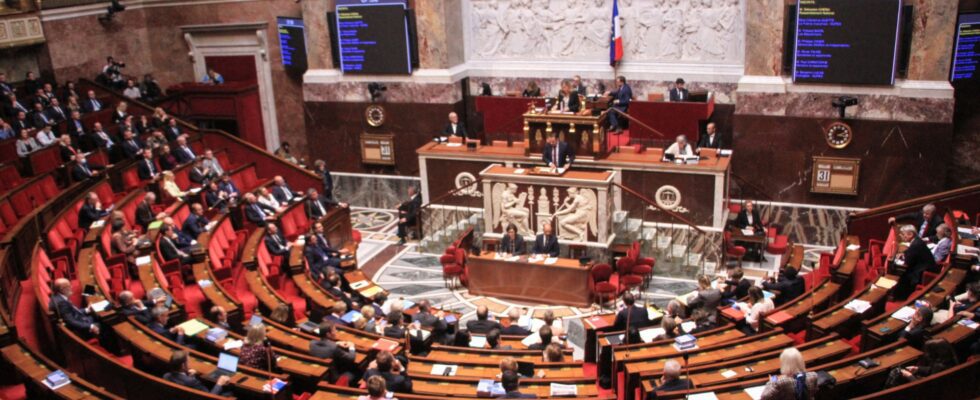Wage increases, end of low emission zones, introduction of school uniforms… This Thursday, the National Rally is presenting seven bills to the National Assembly and the Senate, as part of its parliamentary niche day. The opportunity for the party to make its ideas heard and to hope that they will be adopted by the other groups of deputies. If, this time, it is the turn of the RN, all the parties represented in the Assembly also have, in turn, their parliamentary niche. But concretely, what is it and how does it work?
Allow all groups to make their voices heard
First of all, the parliamentary niche is a right enshrined in the Constitution. If this specificity was not provided for in the initial text of 1958, it was added in 1995 then reaffirmed in 2008. Thus, the Constitution stipulates that “one sitting day per month is reserved for an agenda set by each assembly on the initiative of the opposition groups of the assembly concerned as well as that of the minority groups”. In concrete terms, this means that one day a month, and in turn, each opposition party or minority group can put its bills on the agenda. Usually, it is the government that chooses the priority subjects that will be debated in the Assembly and the Senate.
As for the other parliamentary days, the proposed texts are then debated within the hemicycle by the deputies and then voted on. The only rule: all bills must be studied on the day of the parliamentary niche because, once past midnight, they can no longer be voted on.
This principle allows all the groups present at the Assembly, even the smallest ones, to make their ideas heard and to put these texts to the vote. Since last June, the parliamentary niche has been all the more important as the presidential party does not have an absolute majority in Parliament. The groups can thus create the debate or put on the agenda subjects which do not go in the direction of the government.
Bills rarely adopted
For example, during its parliamentary niche on November 24, France Insoumise put on the agenda the inclusion of abortion in the Constitution, the prohibition of bullfighting or the reintegration of unvaccinated caregivers. Proposals that led to tense debates. This time, only the constitutionalization of abortion was adopted. Indeed, it is rather rare that the texts proposed during parliamentary niches are adopted by the Assembly.
But if this is the case, the legislative proposals must then follow the ordinary legislative procedure.
